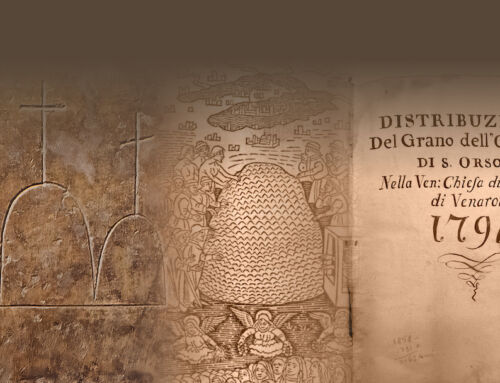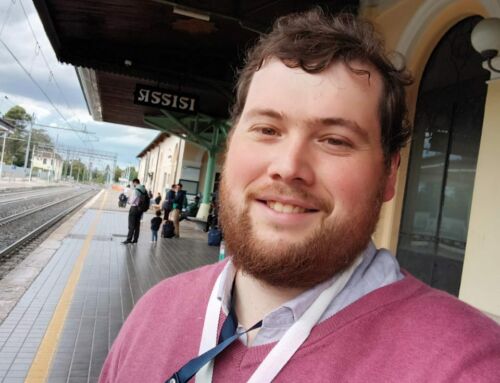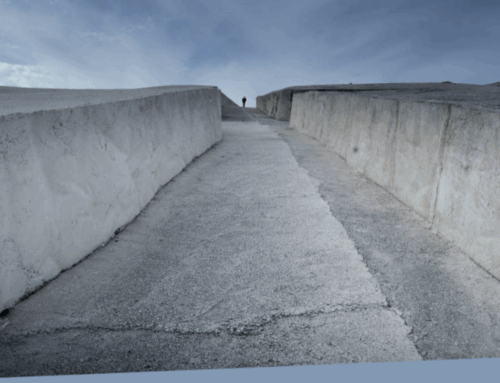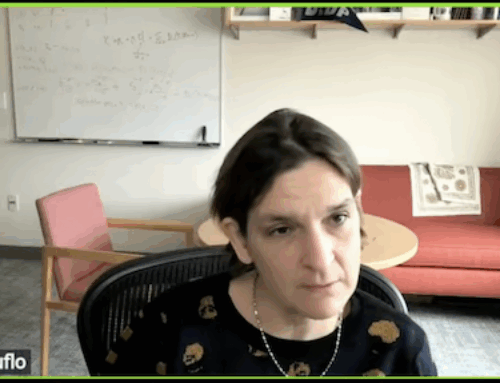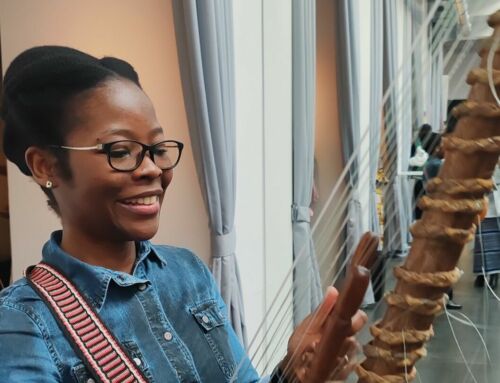Contributions from Hungary, where a new EoF Hub is setting up
Written by Gyula Pál in the weekly Mandiner.
Why and for whom do the bells ring at noon today? The Franciscan monk Csaba Böjte’s mission for peace and the economy of peace unfurled the flag at the castle of Vajdahunyad, in the spirit of the Noonday bell.
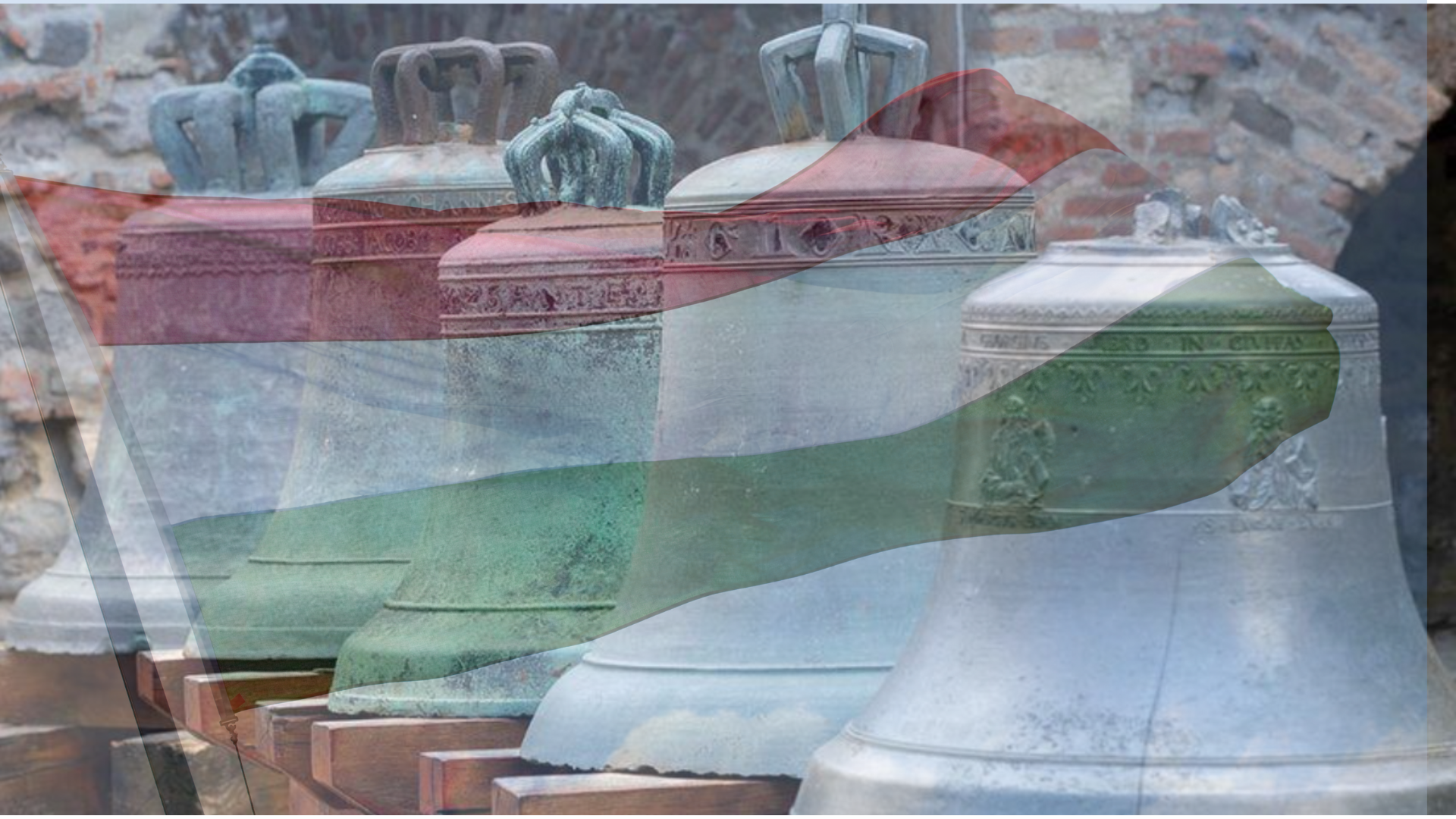
During his visit to Budapest, Pope Francis called the Hungarian people bridge builders. He asked us to build bridges between peoples in Europe through dialogue and trust. János Hunyadi was perhaps the last historical figure in the Carpathian Basin to succeed in building bridges between peoples. Through his own single-minded efforts, he built bridges between the nations living here. It is not only we Hungarians who look up to János/Iancu/Janko with respect, but also the Romanians, the Serbs and the other nations living together with us. We were in danger, and he fought tirelessly for all of us, and we all feel that he is our own.
Every year, in memory of the Hunyadi Coalition, we celebrate the Noon Bell, the symbol of the times, which can still be heard today, calling people together with love!
On the third weekend of July every year, let us offer a Holy Mass of thanksgiving, make atonement for our sins, and ask God for the grace of blessed peace born of unity – Brother Csaba encourages the peoples of the Carpathian Basin to join in.
Even 567 years ago, the southern chimes were more than a call for the spiritual unity of Europe. It was as much about building bridges between the spiritual and the material, and between the universal and the local planes of action. The Pope addressed the whole Christian world in spirit. John Hunyadi brought about the political unity of the local peoples, and the charism of the other hero of Nándorfehérvár (Belgrade), the Franciscan friar St John Capistrano, forged from this spiritual and political unity a spiritual-physical unity that was far superior in strength than its sheer numbers indicated on the battlefield.
Today, the same integration must be achieved, but this time not to stop the external enemy, but to stop the internal decay, because neither peace nor prosperity is possible if material is not at the service of spiritual growth. In the time of Hunyadi and Capistrano, it was necessary to rely on scarce material resources to work miracles with faith in the face of quantitative superiority. Today, thanks to technological progress, we have the materials, and what is needed is to reintegrate the increasingly complex material-quantitative dimension with the spiritual-qualitative one.
In our late modern age, natural and social assets have become mere resources that drive the cogs of the global economy. The grievances caused by these cogs have become ideological weapons that pit peoples and people against each other. All that is needed is to transform the economy from a purely quantitative principle to an integration of quality and quantity.
Four years before his visit to Budapest, Pope Francis asked young entrepreneurs and economists to take up this task, and together they founded the Economy of Francesco movement, which brings the principles of the economic institutions run by the medieval Franciscans, including St John Capistrano, into the modern context. “The future enters the world through you. I ask you to be the protagonists of this transformation,” he said, using the metaphor of the door, as he did four years later in Budapest. Our young people, raised by the St. Francis Foundation, together with the young people of the Carpathian Basin who are working on regeneration and innovations, are happy to participate in the peace movement that we and the noon bells are launching and in the Economy of Francesco movement that integrates it, as contributors and shareholders of the Pulsatio Meridiana (Noon Bell), the regenerative economic platform of the Voice of Oecophilia, which is preparing for the Budapest Stock Exchange.
So, we are building new bridges with the noon bell: this time between the economy of the past and the economy of the future, and between young people, whatever their social background.

